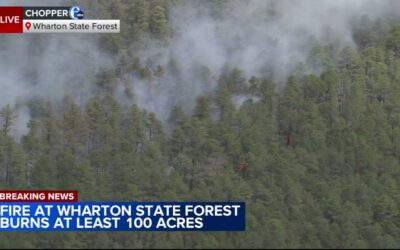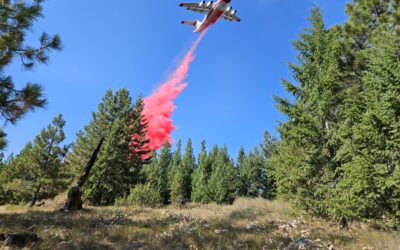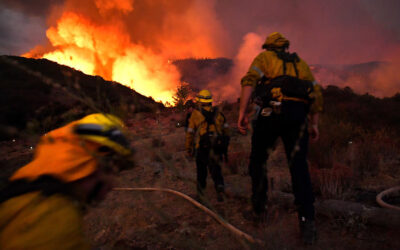
Mark Campbell worked with Saskatchewan Wildfire Management for 25 years, before moving on to a successful second career with Perimeter Solutions.
Perimeter Solutions is celebrating the 60th anniversary of PHOS-CHEK® long-term fire retardant, which was first approved by the US Forest Service in 1963. PHOS-CHEK has protected thousands of properties from destruction and saved countless lives in the decades since it was introduced. Its success was made possible by individuals who left their mark on the fire safety industry by contributing to its innovation, promoting its benefits and teaching others how to use it effectively to prevent the spread of wildfires. Perimeter Solutions is honoring some of these individuals by identifying them as its Heroes of PHOS-CHEK.
Mark Campbell dedicated his whole career to wildfire management. During his first 25 years, he worked with Saskatchewan Wildfire Management, before moving on to a successful run with Perimeter Solutions, where he traveled to share his knowledge with firefighters around the world. Mark tells his story as the newest Hero of PHOS-CHEK.
Mark Campbell
I grew up in Winnipeg, Manitoba, Canada, and I knew from a young age that I wanted to work in environmental sciences. To earn my post-secondary degree, I had to go to school in Saskatchewan, and when I graduated, the province of Manitoba was in the middle of a hiring freeze. There were 96 graduates in my class, and only 10 were given job offers. I was fortunate to receive one in Saskatchewan.
My wife Pattie and I moved around northern Saskatchewan for five years, and working in the north as a Conservation Officer, I started getting involved in wildfire management. Being posted in the northern district was a real stroke of luck. If I ended up somewhere in the south, I would have been a conservation officer and would have been happy with my career, but getting to work with wildfires has been fabulous.
I was on the ground helping to coordinate the attack, ordering helicopters along with other responsibilities to help contain and extinguish the fires. That experience helped to develop wildfire skills that led Saskatchewan Wildfire Management to offer me a job as an air attack specialist. I was basically the onboard fire specialist, working with a Bird Dog Pilot to direct the air tanker operations.
When you are in the Bird Dog plane in air attack, you wear a lot of hats. We lead the bombers into the fire to do the job, and then manage all the coordination with the ground crew. We would size up the situation, determine what the fire looked like and then I would get back to District headquarters to tell them how many people were needed to battle the fire, what equipment was needed, and basically inform them about all the logistical information they needed, so that they could make an attack plan.
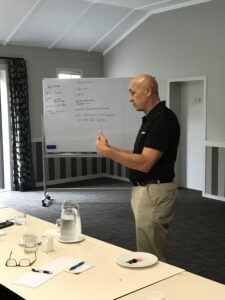
During his career with Perimeter Solutions, Mark Campbell traveled internationally to train aerial firefighters on the use of fire retardant.
I stayed in the air attack system for 25 years, and for 18 of those I served as the Chief Air Attack Officer for the Province, and just being part of the Canadian air attack community was one of the highlights of my career. During my time, we modernized the Provincial air tanker fleet, acquiring Convair 580s to replace our aging S2 Tracker aircraft, and converting our outdated CL 215 skimmers to the CL 215T version. Nationally, as part of the Canadian Aviation Working Group, we elevated the professionalism and efficiency of the Air Attack Officer community by developing a national curriculum for entry level air attack officers, developed uniform hiring criteria and standards for new recruits, and worked tirelessly on standardizing air operations between agencies to facilitate safer and more effective resource exchanges between partners.
One of the challenges in Canada when compared to working wildfires in the US is that many of the airbases are quite remote. Wildfires don’t occur in the same areas as frequently, so the bases are used intermittently throughout the year. That being the case, about 99% of the fire retardant used in Canada is liquid concentrate. Liquid concentrate is preferred because it requires less equipment, you just need to recirculate it every spring, and one person can handle the base.
When a liquid concentrate PHOS-CHEK was introduced in Canada, I was anxious to start using it. I knew Eddie Goldberg and Peter de Bruijn from a part of ICL that eventually became Perimeter Solutions, and I had no reservations getting them into the marketplace. We gave them the Hudson Bay Base, and Alberta followed suit by putting PHOS-CHEK into the Lac la Biche base, creating a PHOS-CHEK presence in two Provinces. By the end of that first year, PHOS-CHEK was a good product, the service was outstanding, and the PHOS-CHEK retardant was preferred by air crew due to the enhanced visibility it offered over the competitor’s product.
A few years later, Eddie was evaluating his Canadian team. They had very skilled technical people and R&D, but there was just one gap – they didn’t have anyone who had sat in airplanes dropping retardant. I had that experience and had obviously built strong relationships with colleagues across Canada for years, so he offered me a position as their Canadian Agency Liaison. As I mentioned, I knew Peter and worked with another ICL representative, Corrado Visentin, and had nothing but positive interactions with them. I liked the company, loved the people, and I was ready to make a career change, so I welcomed the opportunity and became the smiling face of PHOS-CHEK.
It was the easiest transition in history – I just had to change golf shirts. Everyone I met with I had been working with for the past 20 years. I knew the challenges they were facing, knew when to leave them alone and when to reach out to them – everything was second nature.
Later in my career, I started doing some international work. Australia had a fairly mature wildfire operation, so we would liaise with their agency heads, talk to them about our new product lines, and if they had a need for it, we would provide air attack training. South America was a little different – they were more in the developmental stage, so I traveled to Chile and Colombia and provided more comprehensive training for their air attack teams, which were in their infancy. The Chilean training was done in conjunction with PHOS-CHEK Chile and was delivered to a group of their naval aviators as well as some senior fire managers from their national fire agency CONAF. The Colombian training involved their air force group, and while I was doing the air attack training, Shannon Horn and Guy Clancy from our U.S. air base services group helped them update their firefighting equipment. My last international foray was a post-COVID trip to Italy, where the training also included strategies for integrating land-based air tankers with the Italian CL-415 skimmers to maximize their overall fleet efficiency.
I still make myself available today when needed, but when I think about career highlights working with Perimeter Solutions, it was the people. Just working with such a professional group with a common focus and knowing when you needed help, you were going to get it. Both the Canadian team, everyone in the lab, the US air base services – I can go on and on. It was a privilege and an honor to be part of the group.
Perimeter Solutions will recognize new Heroes of PHOS-CHEK throughout 2023 in the PHOS-CHEK 60th Anniversary Museum, which includes numerous exhibits that tell the history of PHOS-CHEK. To tour the Museum, visit https://www.perimeter-solutions.com/en/phos-chek-60-years/

